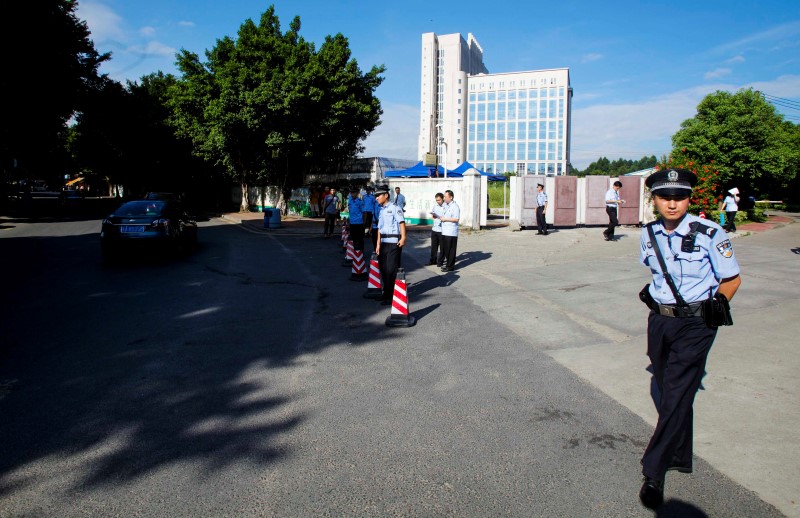By James Pomfret
HONG KONG (Reuters) - The long-awaited trial of a prominent Chinese writer and activist resumed in southern China on Friday, more than two months after his lawyers boycotted an earlier hearing with Beijing showing little sign of easing its clampdown against rights campaigners.
Guo Feixiong, 48, was arrested for taking part in a rare public protest against media censorship outside the offices of the Southern Weekly newspaper in January last year in the southern city of Guangzhou.
Guo will be tried on a charge of "gathering crowds to disturb public order", along with another activist Sun Desheng.
The trial comes amid a clampdown on mainland Chinese rights activists, including those who have backed Hong Kong's two-month pro-democracy civil disobedience push for full democracy that has posed one of the biggest political challenges for Beijing since the 1989 Tiananmen Square demonstrations and crackdown.
Zhang Lei, one of Guo's lawyers, confirmed on social media that the trial had began, but said the court had barred them from bringing computers into court, and that authorities had stifled or forcibly dismissed any arguments or objections Guo or his lawyers raised in an "intense" morning session.
Zhang couldn't be reached on his mobile phone for comment.
Security was tight outside the Guangzhou People's Court with scores of police blocking roads. Foreign media and diplomats were barred from observing the trial, while local activists and supporters were taken away by police, according to witnesses.
The bespectacled Guo, whose real name is Yang Maodong, was widely respected for his longstanding work to bolster rights in China, for which he was previously jailed for several years.
Other Guangzhou activists have also been targeted, including Tang Jingling, who faces a subversion charge for his rights work.
Since Hong Kong's "umbrella movement" for full democracy kicked off in late September, Chinese authorities have detained at least 76 activists nationwide for publicly backing the movement, according to Amnesty International, with President Xi Jinping showing little sign of easing his iron grip over critical voices and the media.
Over the past month, rights lawyer Pu Zhiqiang and journalist Gao Yu have had criminal proceedings laid against them, while Ilham Tohti, China's most prominent advocate for the rights of Muslim Uighurs, lost his appeal against a life sentence for separatism last week.

"Beijing's assault on civil society seems to know no bounds as peaceful activists are increasingly subject to criminal prosecutions," wrote Sophie Richardson, the China Director of Human Rights Watch, who added such individuals were "allies in strengthening the rule of law, not enemies of the state".
(Reporting by James Pomfret; Editing by Nick Macfie)